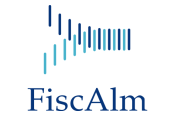Expat in Holland
If you are working or living as an expat in The Netherlands you are liable to pay Dutch tax. In this situation, it is often worthwhile to check whether there is a right to a tax refund, because expats sometimes are entitled to tax benefits (for example if they are still insured in their home country for the social security or in case of 30% ruling).
Even if you have not received a letter/invite to submit a tax return, it is important to have your tax situation checked by a tax advisor to ensure you don’t miss any tax refund opportunities. And if you do not speak the Dutch language, and are not familiar with the Dutch tax ruling, it is not wise to fill in the form yourself. A mistake is easily made…
Tax forms
The regular tax form is a P-form. In immigration or emigration situations however, the special M-form needs to be filed. This is a quite extensive tax return form which needs to be submitted on paper, but which I can file digitally in special tax software. In the situation in which you lived outside the Netherlands, but still had income or property in the Netherlands, the special C-form for non-residents needs to be filed.
The M-form and C-form often give opportunity for refunds. I can check what tax forms needs to be submitted in your situation and also take care of other tax forms, like the provisional tax assessment in case you bought a house and want a monthly advance of the benefit of your mortgage rent deduction.
My charges as per the 1st of Jan 2024 are € 60 for a normal P-form (one person), € 80 for a joint tax form (2 tax partners) and € 95 for M- and C-forms. In the event of house purchase or sale, divorce, or income other work, additional charges of € 20 will be added on top of this rate.
Qualifying non-resident tax payer (M-form)
As from 2015, there is no longer the option to choose to be treated as a resident tax payer and be entitled to all tax benefits as residents of the Netherlands are entitled to. You must meet certain conditions and be qualified as a qualified non-resident tax payer in order to receive the Dutch tax benefits.
These conditions are: (1) you live in an EU country, in Liechtenstein, Norway, Iceland, Switzerland, Bonaire, Sint Eustatius or Saba, (2) you pay tax in the Netherlands on more than 90% of your worldwide income and (3) you can submit a personal income statement from the tax authorities of your country of residence. Only if you meet these conditions, you will be entitled to deductible items, tax credits and tax-free allowance.
Do you have a partner? And do you want the Dutch Tax Authorities to consider your partner a tax partner? This is only possible if you meet above conditions.
The year after the year of your immigration, you will be treated the same as a Dutch resident and have the same tax benefits which can be claimed in the regular P-form.
Dutch tax benefits: deductions/ spouse tax credit.
The Dutch Tax System has a number of benefits. When you own a house, the rent on your mortgage is deductible in your tax return, meaning that you don’t have to pay taxes over this amount and you will receive a tax refund.
Other Dutch tax return deductions are:
- educational costs (school fees of children are not deductible and from 2022 study costs are no longer deductible)
- charitable giving
- alimony
- healthcare costs (if not covered by healthcare insurance, no own risk/ healthcare insurance premiums)
If you – as working expat – have a husband or wife who doesn’t work, he or she can be entitled to the ‘spouse tax credit‘. This refund can be as much as EUR 193 (2022) and EUR 379 (2021). In 2023 this tax credit will no longer be paid out to the non-working spouse.
Please note that if your partner lives abroad the whole year, then he/she is not entitled to this tax refund. He or she is then not considered as a tax partner or qualifying non-resident tax payer.
How can FiscAlm help you?
Because of the the complexity of the Dutch Tax System and its rules, it is recommendable to have an expert check your taxes and file your tax returns. Through my deep and broad experience I have been able to save a lot of money for my clients. If you want to make an appointment or request more information, please fill in my contact form or contact me on phone number 06-45174499.

